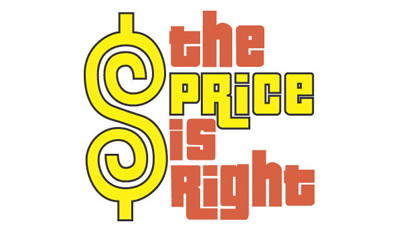
A consulting colleague of mine recently sent me an email with a dilemma he was facing. His email said, “Hey Russ, I have two clients that I will be meeting with to review how I can help them improve their sales. We are looking at their business plans and reviewing their geographical market. What’s a fair hourly rate for someone to come in and review sales, processes and do a SWOT analysis?”
When I hear “hourly rate”, I usually think of my mechanic. “Well, your framastat isn’t passing signals to your defibulator, so we need to run some diagnostics and probably will have to replace your entire transgasual system. I’m guessing 12 hours at $200 per hour. Yes sir, we’re talking about $2400 or so for the job,” as he spits his cigar stub out of his mouth and into an oily can sitting next to my poor unsuspecting car. While this may be fine for the trades, business consultants can’t operate this way. We have to look at the big picture and consider the value of the work being done.
Rarely, if ever, do we go in and fix something that’s broke, like a framastat. Instead, we analyze symptoms, recommend ways to improve those conditions, and implement processes to enhance the customer’s situation. I liken that more to what a doctor does. They analyze what’s wrong and prescribe alternatives to correct the situation. If you agree with their prognosis, then you can either use that doctor to resolve your problem, choose another doctor, or take no action at all, in which case the problem will go away by itself or persist until you don’t feel it any longer or pass away as a result of ignoring it. In either case, you paid for the diagnostic visit, which is of value to you since you, a) know what’s wrong, and b) know what alternatives from which to choose. And the doctor’s visit costs the same amount no matter how long it took. He charged by visit, not by hour.
I never charge by the hour since it is subject to debate, negotiations, etc. I am not a mechanic? In fact, I don’t even charge by project. I charge by “value”. Here is how I responded to my colleague’s email. “Consider this — I’m sure you will do some prep work in advance of your meeting, and that will take some time. You will spend time on-site with your client. And, you will undoubtedly do follow-up work, such as write a needs analysis or implementation plan. Now, this final analysis or report is of value, right? And, your client could take it to another consulting firm to implement, or do it themselves. So you have to make sure you get enough out of it by showing your client it’s value, regardless of how many hours it takes you to complete. By the way, do you really have any idea how many hours it WILL take? Of course not.
“The real question is not how much to charge per hour, but how valuable will this project be to your client? And that is something only you (and your client) need to work out. But I will tell you this — I do nothing for just a few hundred dollars. It’s not worth my time to get a few bucks for a small project, unless it is one step toward a committed larger project (i.e., Phase 1). Why? Because my time is valuable too. These small jobs are often the customer’s attempt at trying to get free advice. If it only takes a brief moment to figure out, and therefore only worth a few dollars, then how valuable can it be? Not very! However, if this is multi-phased project and the first phase is a brief project plan or needs analysis, then it is definitely a valuable exercise and therefore worth doing, since it is part of a larger project. If the customer decides to use someone else to implement the solution you recommended, so be it. At least you’ll get paid for your efforts and the value delivered to the client. You need to ask a lot of questions to learn what pains they are having, find out the cost of those pains to the client, then associate a VALUE to the solution. That’s what your fee should be based upon.
“Oh, and by all means, DON’T DISCOUNT. If you do, you will be the ‘discount guy’ of your area and everyone will find out (because they’ll tell each other, especially if they are referrals) and you will forever have to discount for everyone. Bad habit! Instead of discounting, take away some value and sell what’s left for a lower fee.”
So, he took my advice and changed his approach. Darn! I just realized that I gave him free advice that had value. Oh well, it wasn’t that bad. My colleague ended up taking a full-time position with one of his clients. Perhaps he isn’t quite ready to enter the exciting world of consulting. When he learns about value-pricing, then I’m sure he will be one step closer to a new career.
Good luck and good selling!
 Russ Lombardo is President of PEAK Sales Consulting, LLC and an experienced CRM and Sales consultant, trainer, writer, speaker and radio show host. Russ works with businesses to help improve their customer acquisition and retention for increased revenue and success. Russ is author of the books, “CyberSelling”, “CRM For The Common Man” and “Smart Marketing”. He can be reached at 702-655-5652 and emailed at russ@peaksalesconsulting.com.
Russ Lombardo is President of PEAK Sales Consulting, LLC and an experienced CRM and Sales consultant, trainer, writer, speaker and radio show host. Russ works with businesses to help improve their customer acquisition and retention for increased revenue and success. Russ is author of the books, “CyberSelling”, “CRM For The Common Man” and “Smart Marketing”. He can be reached at 702-655-5652 and emailed at russ@peaksalesconsulting.com.
Categories